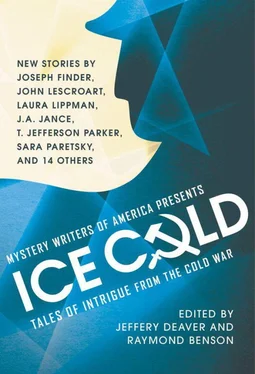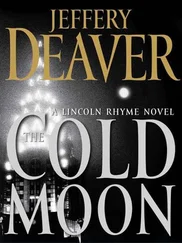Besides, whatever the pace of their courtship, she was not repenting . She didn’t regret her marriage. The house was fine, just fine, especially for a place to pass through. The neighborhood was—
There, her resilience failed her. She hated Edmondson Heights, the blocks and blocks of brick rowhouses just like her own, thrown up in the ’50s to address the shortages after the war. She could and did walk for miles, but the scene seldom changed. Sometimes, she walked all the way to the Westview Mall, but it was a dark, jerry-rigged place, an open-air shopping center that had closed itself in to keep up with the times. Besides, she had no money to buy the things she really wanted, clothes and shoes and books, so she ended up at Silber’s Bakery, eating those abominations known as pizza rolls, hunks of white bread with tomato sauce and cheese smeared on top. She would probably weigh an extra ten pounds if it weren’t for all the walking.
Over the summer, she gradually began to see the small distinctions from block to block along Newfield Road, which had initially looked all of a piece to her. She could tell, for example, where the neighborhood changed over from renters to owners. The tiny front lawns were better-kept and often had shrubberies, the ones hung with bright red berries that Judith had always heard were poisonous, but perhaps that was just a story told to scare children. The doors and shutters were painted in glossier colors, and the houses had storm doors. Renters kept iridescent globes on pedestals in their yards. Owners nailed ceramic cats to their brick facades. Some even had those hitching posts that looked like jockeys, although the faces had all been whitewashed. There were more children, too, in these blocks. Judith’s block was almost childless. Two blocks over, the Lord Baltimore diaper truck was a daily presence. Go another five blocks and it was the Good Humor man.
Walking as she did, day in and day out, Judith felt like a spy in her own life. She looked like the other women she saw, she lived a life like theirs, and yet she was not one of them, she was sure of that. Was it merely being Jewish in a neighborhood where almost everyone else seemed to be Catholic? Her face burned with the memory of her humiliation when she served pot roast to one pair of neighbors on a Friday night, only to have Mrs. Delaney say quietly, “We go meatless on Fridays.”
“Oh, who gives a crap, Frances?” said Mr. Delaney, who took seconds. It was a good pot roast; Judith couldn’t help preening a bit. Mrs. Delaney limited herself to potatoes and the Jell-O salad, said she was considering giving up red meat anyway.
“Frances would be a hippie, if I let her,” Mr. Delaney said. “But I’m not going to be married to a hippie. And I’m not going to live on rabbit food. She’d grow her own vegetables if I let her.”
Judith’s face had burned at that, too, thinking of the plot that Patrick had planted in their backyard.
Frances Delaney was young, younger than Judith, yet Judith still thought of her as Mrs. Delaney, perhaps because Mr. Delaney was so much older, in his 40s, closer to her parents’ generation than hers. He had been career military until a year or so ago, and Judith was unclear where he had met his bride. His attitudes, too, made him seem old. Gruff, bossy. He worked at the Social Security Administration, as did many in the neighborhood. At the dinner table that night, he placed his large hand over Mrs. Delaney’s and said: “No hippies and no women’s libbers for us, right, Pat? Our wives stay home and take care of us, as it should be.”
“Judith worked at her father’s variety store before it went bust,” Patrick said, missing, as he often did, the point beneath the actual words, words not being something he used very much. “She was a secretary at Procter and Gamble when we met.”
“ Before you married,” Mr. Delaney said.
“Yes.”
“That’s okay. Frances here was a nurse.”
“And you met—” Judith began.
“Oh, it’s such a boring story,” Frances Delaney said. “Don’t bore them with it, Jack. Where did you two meet?”
“The movies,” Patrick said. No one would ever accuse Patrick Monaghan of telling long stories. At night, when Judith tried to share her observations about their neighborhood, he would say: “I’m not much of one for gossip, Judith.”
But Judith didn’t mind that Patrick was the strong, silent type. She had come from a family of big talkers. Patrick was her Quiet Man. She loved his silences. Except when she didn’t and then she locked herself in the bathroom, wishing she had a phone cord that stretched all the way in there. Only whom would she call? Her mother, who would repeat the line about marrying in haste? Her girlfriends, who had married proper Jewish boys and were living proper Jewish lives in the northwest suburbs? Judith might be able to find a cord long enough to stretch into the bathroom, but she wasn’t sure that there was any phone line long enough to take her back to the life she had known. She was a spy. A spy in what her mother called the land of Mackerel Snappers and Shanty Irish.
She did not look that different from the other women. Her hair had a reddish cast and she was given to freckles, even in this sunless summer. She was often asked, in fact, what parish she had grown up in, a question she eventually realized was meant to suss out whether she preferred St. William of York or St. Lawrence. There was some confusion in the neighborhood about which parish to join, and the choice was considered a tip to one’s ambitions. Would you be moving southeast, to the larger houses in Ten Hills and Hunting Ridge, or west, closer to Social Security, where Jack Delaney worked? It was all very complex, a mathematical equation made up of the husband’s ambitions and prospects, the pace at which the children arrived. Even if Judith managed to sidestep that first question, the other questions were still lying in wait. Patrick had a good job as an inspector for the city liquor board. Safe, solid. But how high would they rise? How many children would they have? And when those children arrived, how would they be raised? All very well to say love was all when it was only the two of you, but baby makes three and some very difficult questions, as Judith was now realizing. Who was she? Who would her children be?
So while others might call what she did on her walks snooping or spying, Judith believed she was simply trying to find a way to be. Would she move toward Ten Hills or Woodlawn? Would she have an iridescent globe on a pedestal in her yard? (Probably not; they struck her as tacky.) She definitely would not have one of those whitewashed hitching posts. And she didn’t know what to make of the people who affixed those two pairs of kittens to their brick-fronts, always a white one and black one. What was that about? Who were they? Who was she?
The summer continued cool and damp. Good for sleeping and good for walking, but not for much else. Judith imagined this was like summer in London, not that she had been there, or San Francisco, not that she had been there, or—well, she really hadn’t been anywhere. She had grown up in Northwest Baltimore, the youngest of five, the only daughter. Spoiled, she saw in retrospect, but does anyone ever realize they’re spoiled until the spoiling ends? Yet spoiled as she might have been, she could put her little house shipshape by 11 a.m. and then what? She could have stayed in and watched soap operas, but she was more interested in the soap operas playing out in the neighborhood. In plain sight, once one knew where to look. The battling Donovans. The literally bursting-at-the-seams Kate O’Connell, who had just given birth to her fifth child in five years. The Horton hooligans, as they were known, a brood of terrifying brothers. Judith took to walking down the narrow lane that led to the carports behind the houses of Newfield Road. This was where real life could be glimpsed. Almost no one here had a proper garage and some didn’t even have carports, only concrete pads. She saw Betty Donovan sitting on her back steps, which could use a coat of paint, smoking a cigarette and holding a frozen package of succotash to a swollen eye. She saw the Horton boys trying to burn ants with a magnifying glass, which made her glad that the sun was weak and fitful. She saw Katie O’Connell tie one of her children to the useless umbrella drying rack in her backyard. “He tried to run away,” Katie said when she saw Judith looking. “What else can I do?”
Читать дальше












